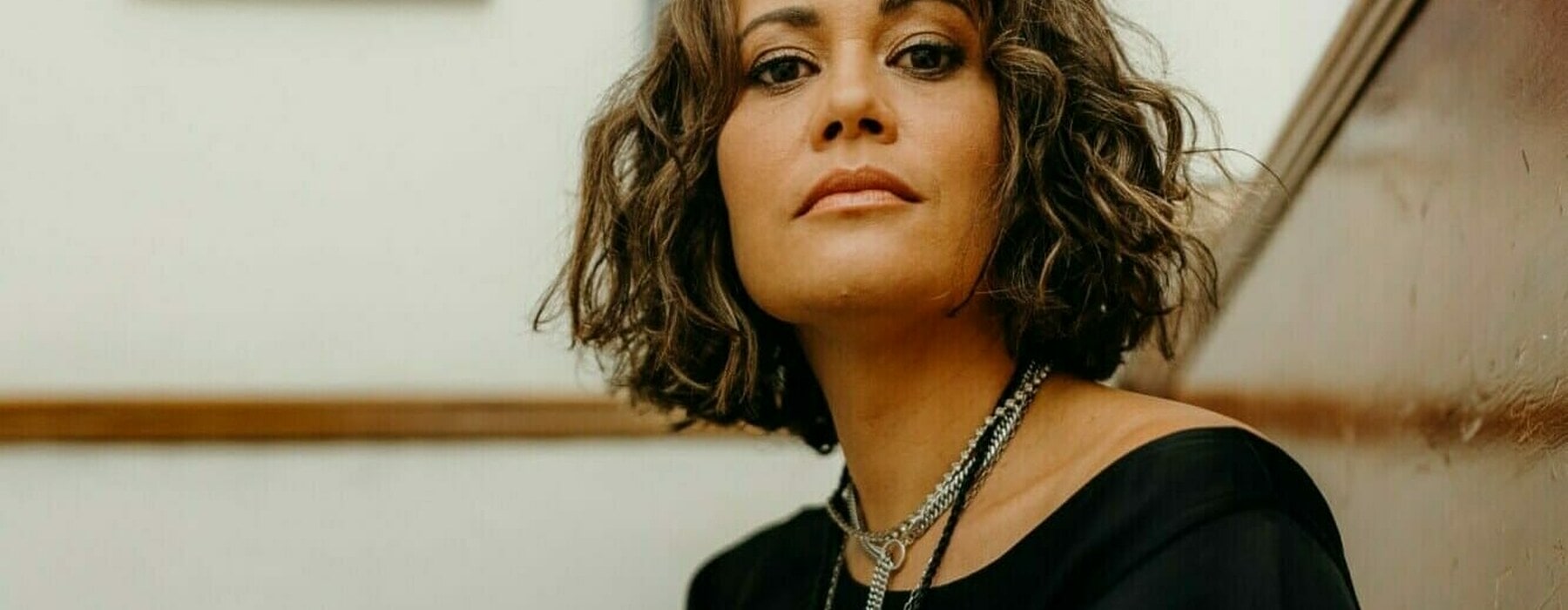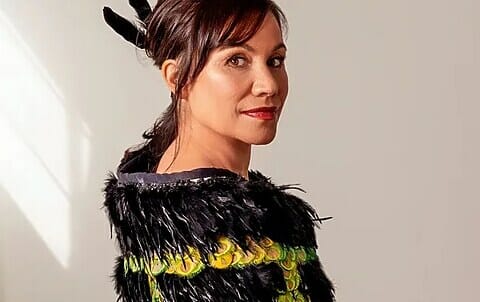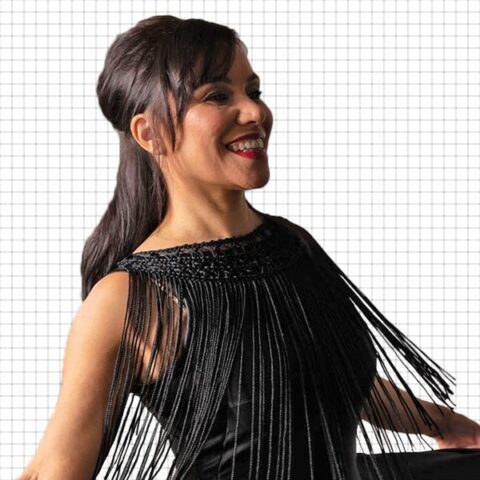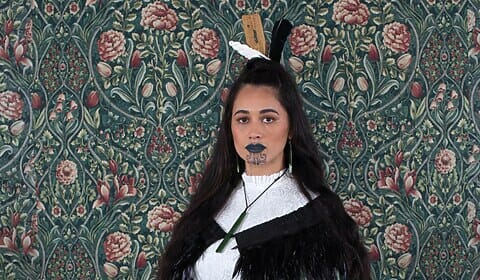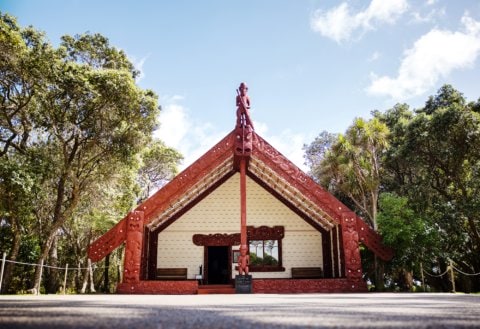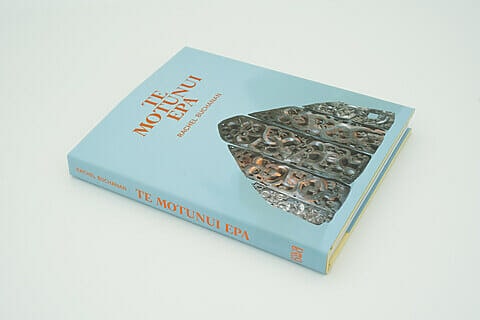Newly married, learning te reo Māori and helping actors as an intimacy co-ordinator, Miriama McDowell feels like she’s finally arrived.
As a star of stage and screen, Miriama McDowell has acted in some of our most beloved films and TV shows. She’s recently played Māori leader Whina Cooper in a biopic film and won a NZTV Award for best actress in the rugby drama Head High.
But acting and directing are not the only areas in which Miriama is making an impact. She’s also one of New Zealand’s leading intimacy coordinators, an important role in theatre, film, and TV sets that liaises and advocates between actors and production to ensure that everyone is safe in regards to nudity, simulated sex, and other intimate scenes.
“It’s about honouring the story and vision but also empowering everyone involved – the director and especially the actors,” Miriama explains.
“When I first started, I felt that my job was to protect the actors. But I soon realized that a big part of the intimacy coordinator is to help the director realise his vision, in a way where everyone is safe and comfortable.”
The intimacy coordinator is a relatively new position and a role that Miriama put her hand up to do because she saw the need to help actors in the industry that she loves. She graduated with a Bachelor of Arts in acting from Toi Whakaari Drama School in Wellington and has worked as a professional actor for twenty years. As part of her work as an intimacy coordinator, she also has mental health and first aid certificates from St John’s and neuro-diversity training from Mind Over Matter.
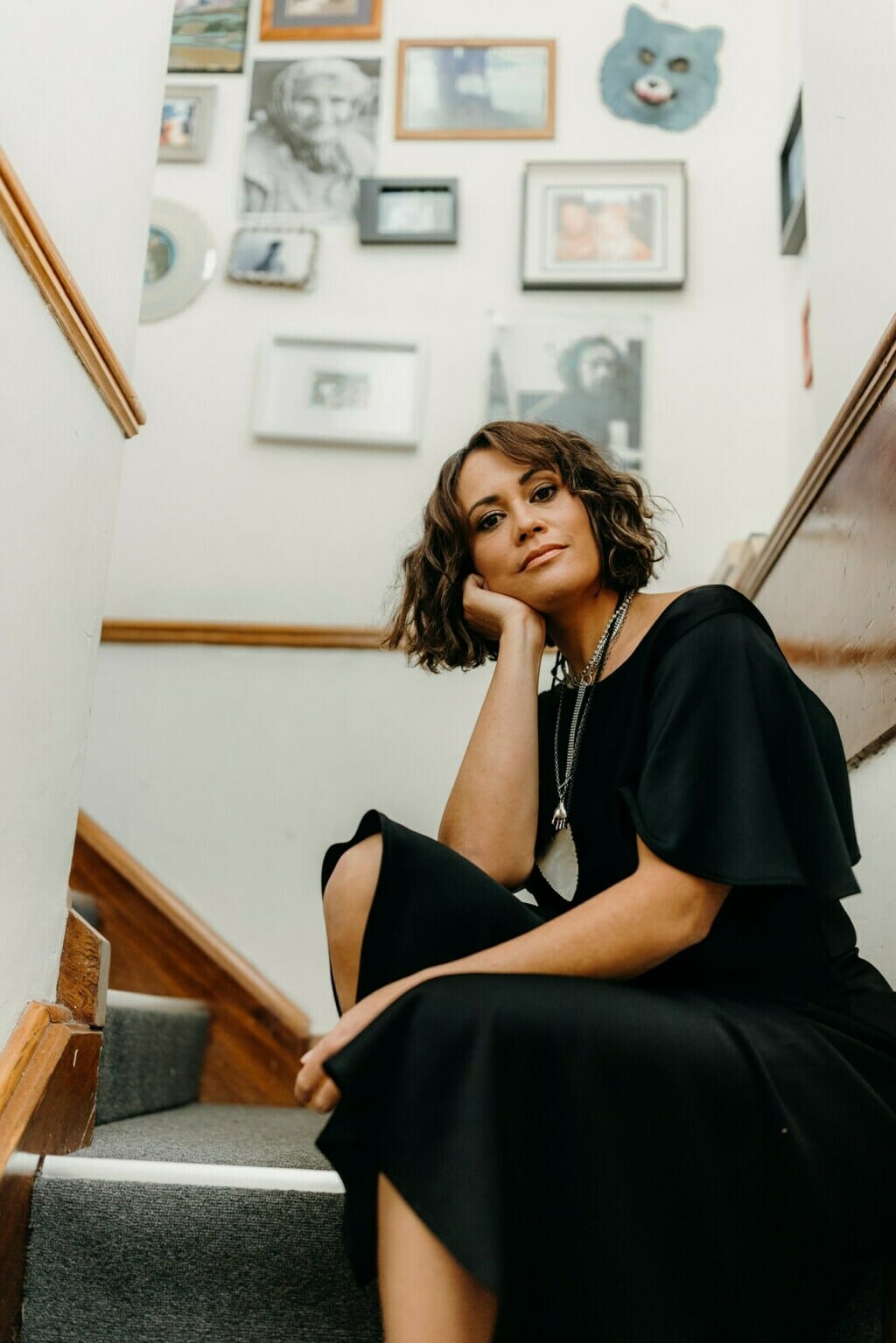
“As a young actor, I had a strong sense of myself. I always looked at the script and asked questions, like do we need this level of intimacy at this moment? Why is this necessary to the story?” she says.
“Some actors are not as confident. Actors are trained to say yes to any offer that is made by the director, or the other actors. It’s an essential part of working in the moment as an actor. So it’s hard to say no , especially when it comes to intimacy.”
She trained as an intimacy coordinator in 2018 alongside other stalwarts within the acting industry, like Jennifer Te Atamira Ward-Lealand and Tandi Wright. They were taught by experienced trainer Ita O’Brien of the UK.
“We were already experienced actors who are at certain stages of our lives in the industry who have the tools to work with actors and make them feel safer when it comes to intimate scenes,” she says.
Along with Tandi Wright, Miriama helped to develop a series of intimacy protocols for Shortland Street and has worked as an intimacy coordinator on Whakaata Māori TV series, Ahikāroa, Life Is Easy, The Brokenwood Mysteries and many US productions filmed in New Zealand.
“It’s creating a space where actors feel safe, feel engaged, feel creative, and able to tell a story. We’re like a stunt coordinator. We are choreographing, and making movements and actions that are repeatable.
Take a scene where we are filming a simple kiss. Who initiates the kiss? How does the other actor respond to the kiss? How long is the kiss? What is the pressure of the kiss? Is there a moment where the kiss comes apart and then comes together again? This is better than saying: “Okay we are just going to roll the cameras and you guys are going to kiss now,” she explains.
“Actors are curious beasts. We want the details. Once you add that to intimacy, it’s like a light bulb moment for actors.”
Miriama is using her intimacy coordinator skills for the new play Prima Facie, which opens in Auckland this week. The drama is a one-woman show, starring Miriama’s mate, Acushla-Tara Kupe, of TV1’s The Gone, and directed by former Shortland Street actor Paul Gittens.
The acclaimed play, written by Australian writer Suzie Miller, is about a lawyer representing men accused of sexual assault and who is assaulted herself. It deals with sensitive issues surrounding consent and assault and criticizes the legal system, in which the playwright says is failing women worldwide.
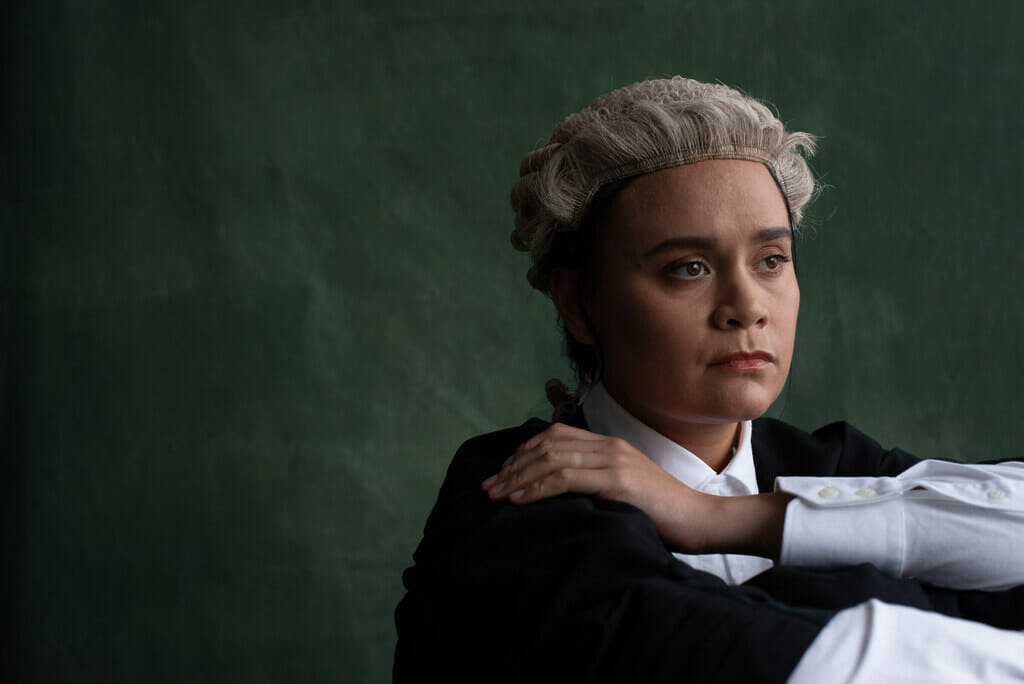
“Women are hard-wired to know when they are in danger, and they have survival techniques to know how to get themselves out of danger,” she says.
“Prima Facie is a solo play with a male director. I’ve come in to help him and work with Acushla. It was good to have another woman in the room, to bring the experience and to advocate telling this story from a woman’s perspective.”
This year, Miriama has dedicated her life to becoming a student of te reo Māori and is learning in a total immersion course.
From Ngāti Hine, Miriama already speaks fluent Spanish which she learned when she was living in Costa Rica in her 20s. She loves the fact that she is going on a te reo Māori journey alongside her daughters, Talanoa, 11, and Hero, 5, who are learning Māori at their schools in Auckland.
“It’s a big sacrifice because I’m not earning. I don’t regret it because I’m having the best time.
I’ve spoken te reo Māori in other ways, at AUT, through my children’s school, through the roles that I’ve played. But this is the first time that I’ve formally learned te reo. Coming back to language learning is a very familiar place.”
Miriama also has support from her husband, Rau Hoskins, a Māori architect who is a fluent te reo speaker. The couple married in December, two weeks after the death of her father.
“It was a rich time of love, joy, and sadness,” Miriama says.
She is enjoying the exciting new chapter in her life.
“Married life is the best. It’s taken me this long to feel like I’ve finally arrived in my life.”
Prima Facie opens at the Herald Theatre in Auckland on June 21
Related Article: The Most Naked by Hannah Tasker-Poland
This is public interest journalism funded by NZ on Air.


